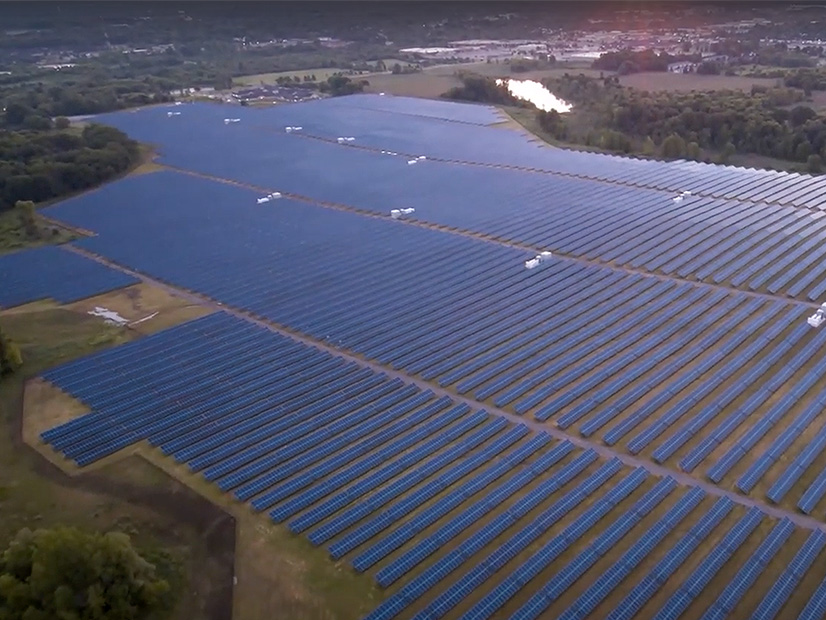LANSING, Mich. — Michigan lawmakers on Wednesday approved legislation to circumvent tax assessment fights over utility-scale solar projects, allowing municipalities to charge a flat $7,000/MW annual fee. The Senate overwhelmingly approved HB 4317 and HB 4318 by a 27-10 vote, sending them on to Gov. Gretchen Whitmer (D).
The two bills — which create a payment-in-lieu-of-taxes (PILT) structure for new solar projects — passed the Michigan House last week.
The bills allow local governments to create solar energy districts in which solar facilities of 2 MW or more would be exempt from property taxes for 20 years in return for the $7,000/MW annual payment.
“The property tax valuation of these facilities has been inconsistent and contentious, at times resulting in litigation between local governments and facility owners,” a legislative analysis of the bills explained. “Some people believe that this litigation burdens local governments and delays the buildout of renewable energy in the state.”
Supporters of the bills said standardizing the tax valuation of solar facilities would avoid such controversies.
Rep. Curtis VanderWall (R), sponsor of HB 4317, told the Senate Energy and Environment Committee on Tuesday the bills resulted from two years of efforts involving local governments, utilities, renewable energy advocates and the Department of Treasury. Whitmer had vetoed similar bills in 2020, saying at the time the Legislature had acted without considering proposals on the issue from the state’s Tax Commission.
The bills will encourage solar development because participating governments will have guaranteed revenue, VanderWall said.
Ed Rivet, of the Michigan Conservative Energy Forum, said the measures could help solar projects avoid some of the problems local governments have had in considering wind projects.
Brian Vanblarcum, director of tax for CMS Energy, told the committee the legislation could end “degrading” controversies between local governments and utilities on developing renewable energy projects.
Local government groups were neutral on the package, however. Judy Allen, with the Michigan Townships Association, said while the package was a big improvement over the 2020 proposals — especially by giving local governments the option to participate in the plan, unlike the 2020 bills, which made participation mandatory — it did not include some provisions those governments wanted, such as indexing the PILT payment amount to the Consumer Price Index.
Laura Sherman, of the Michigan Energy Innovation Business Council, said the bills will support local governments and help renewable energy employment in Michigan. “This legislation can help us further grow our economy while ensuring that communities benefit from increased tax revenues,” she said.
EV Chargers Excluded from ‘Utility’ Definition
Also Wednesday, the Michigan House approved HB 4706, allowing electric vehicle charging station operators to re-sell electricity to EV owners without having to register as utilities.
The bill codifies the state Public Service Commission’s policy exempting EV chargers.
The bill, which passed the House on a 100-8 vote, now goes to the Senate, where passage is expected, as the measure is part of a package of legislation to boost Michigan’s net zero efforts.
Environmental groups, Tesla and General Motors all supported the bill.



